QuestionQUESTION: Hello, I have one 6 year old male pomeranian and did have a 3 year old male pomeranian. The 3 year old passed away three days ago from an imflammatory disease and had to be put down. Well, my still living 6 year old pom seems very sad and distraught over not being able to find my past away pom. They were very close, played together, and lived together for 3 years. I have made a special effort to make sure my remaining pom feels loved and special but I do not know if he is doing that well. His coat is dull, dry (not normal of his coat). He seems sad pretty much all the time (not normal behavior). And I got a new puppy to help myself overcome the loss (it was very stressfull for the entire family and the new pet is helping us humans deal). My old pom wags his tail around the new puppy and seems to want to play but also seems like he resents the new puppy. Perhaps I am interpreting his body language wrong but this is what I get from him. My questions are: is it normal for my remaining pom to feel so sad, have a dull and dry coat, and just overall act depressed over losing his friend 3 days ago? How can I help him get over the lost friend? Was getting a new puppy bad for my remaining pom even though it is helping the family? Do you have any tips to help my pom become new friends with the new puppy? Any help would be great. I really feel bad because I do not want my pom to think the new puppy is replacing him. I also do not want him to feel so sad over losing the old friend and want to soothe him but I am not sure how to go about it. Please, any advice or help would be greatly appreciated.
ANSWER: Hi Rachel,
I'm sorry to hear of the loss of your dog.
The American Society for the Prevention of Cruelty to Animals conducted a Companion Animal Mourning Project in 1996. The study found that 36 percent of dogs ate less than usual after the death of another canine companion. About 11 percent actually stopped eating completely. About 63 percent of dogs vocalized more than normal or became more quiet. Study respondents indicated that surviving dogs changed the quantity and location of sleep. More than half the surviving pets became more affectionate and clingy with their caregivers. Overall, the study revealed that 66 percent of dogs exhibited four or more behavioral changes after losing a pet companion.
Because it's only been a few days since your other dog passed away, it's understandable that your 6 year old dog would still be confused by all the recent changes in your home, he will need time to adjust to life without your 3 year old Pom, and also to having the new puppy in the house. It sounds like things are going along as well as one could expect, it will just take time, perhaps a month or so, for your older dog to get used to things.
Make sure you spend one-on-one time with your older dog everyday to let him know he's still loved, and is special to you. An extra walk around the park, car ride, game of Frisbee, etc. Keep the mood light-hearted and happy with lots of praise and treats.
If your dog is depressed over the loss, he may not respond to extra activity right away. The old saying, "Time heals all wounds," has meaning for your dog, too. Time is one thing that may help, based on the results of the ASPCA study, most dogs returned to normal after about two weeks but some dogs took up to six months to fully recover from a loss.
Brush your dog's coat every day. It counts as "special" time he's spending with you, and it will help spread natural oils in his coat. Try adding either olive oil or flax seed oil to your dog's meals (1/2 a teaspoon per meal) to help restore his coat. If your dog's coat doesn't improve over the next few weeks, you should have him examined by your veterinarian.
Besides the one-on-one time you spend with your older dog, also have special play time with both dogs together. Give out plenty of treats and praise during these play times to show your older dog that good times and the new puppy can go hand in hand. Once they begin having fun, it won't be long until they are playing together and you are the one left out!
Reward good behavior. The coming weeks will be new situations for both dogs. Reward them with playtime or treats so that they know that they are moving in the right direction. When you reward one dog, reward them both whenever appropriate. This builds a team spirit. Occasionally (but not yet) you may want to make a point by rewarding the dog who does right and not rewarding the one who did wrong. But whenever the other dog is just standing by, include that other dog in the reward, even though it was not the one asked to do the command.
If your older dog is in the habit of sleeping with you, that should not change. The puppy's crate can be in your bedroom, but you shouldn't change your older dog's routine.
Here is an article you might find helpful:
http://www.freedogtraininginfo.com/83/puppies-older-dogs-together/
I hope I've been a help.
Best of luck,
Patti
---------- FOLLOW-UP ----------
QUESTION: Thank you for your help so far. My older dog seems to be getting alittle better. He is playing more but still alittle weary around the new puppy but he is not aggressive. One other questions I had, my older pom was shaved during the summer and now is growing his hair back. Well, he has spots that grow slower than others. He does NOT have any bald spots but some spots, specifically around his neck and front shoulders, that grow slower than the rest of his hair, is this normal? Could it have been from shaving him for the summer and also the shaving been a cause of the dull dry coat? Thanks again.
AnswerHi Rachel,
I'm glad your older Pomeranian is feeling a little better. It will take time, but not being aggressive towards the puppy is a good sign.
Regarding the Pom's coat, "post-clipping alopecia" is a common condition in some sled dog breeds, which the Pomeranian is grouped with. After the hair is shaved closely, regrowth is delayed for up to 6 to 12 months. Two theories are given as to why this occurs: The hair no longer insulates the skin and the blood vessels constrict causing loss of blood flow to the hair follicles. This may be an adaptive mechanism to reduce the loss of heat from the exposed skin area in harshly cold climates.
Loss of the hair may cause a drop in temperature in the area that adversely affects the blood supply to the area.
Hair that eventually grows back in may be darker in color.
You may want to have your dog examined by your veterinarian to rule out a hormonal problem. Once the hair grows back, clipping him again next year might not be a good choice. There is no reason to shave down your Pom's coat because the weather is hot. A Pomeranian has long fur as nature intended.
Best of luck,
Patti

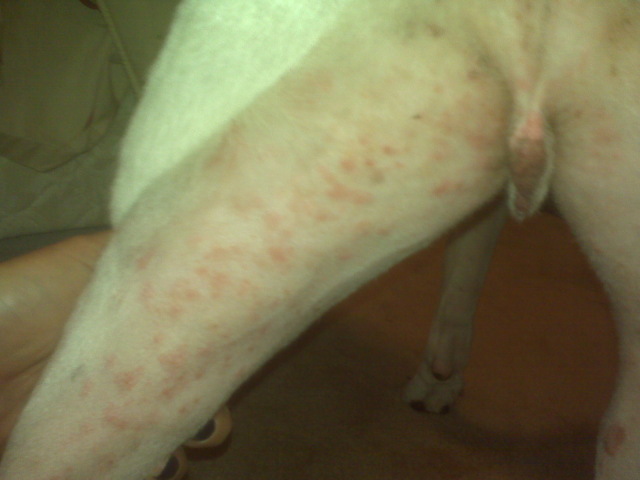 Large dog with possible poison ivy
Question
Guero
My poor dog has led a rough life to date
Large dog with possible poison ivy
Question
Guero
My poor dog has led a rough life to date
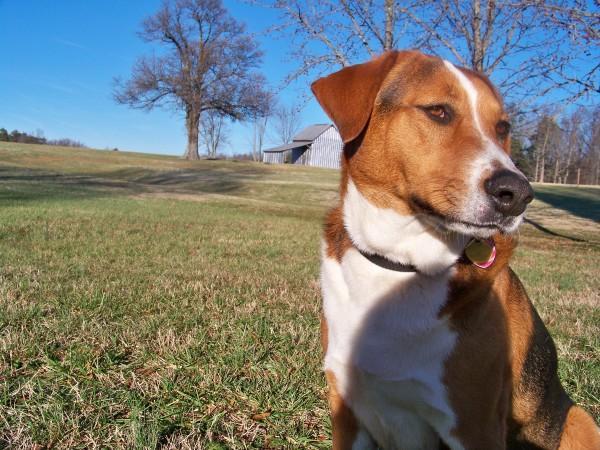 My dogs agression
Question
This is my dog
Hi Shelley!
I have a question f
My dogs agression
Question
This is my dog
Hi Shelley!
I have a question f
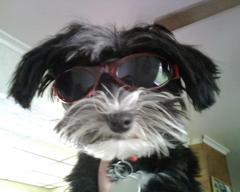 My 1 year old Yorktese is paper trained but goes pee in the middle of the kitchen floor
Question
QUESTION: I have a wonderful 1 year old
My 1 year old Yorktese is paper trained but goes pee in the middle of the kitchen floor
Question
QUESTION: I have a wonderful 1 year old
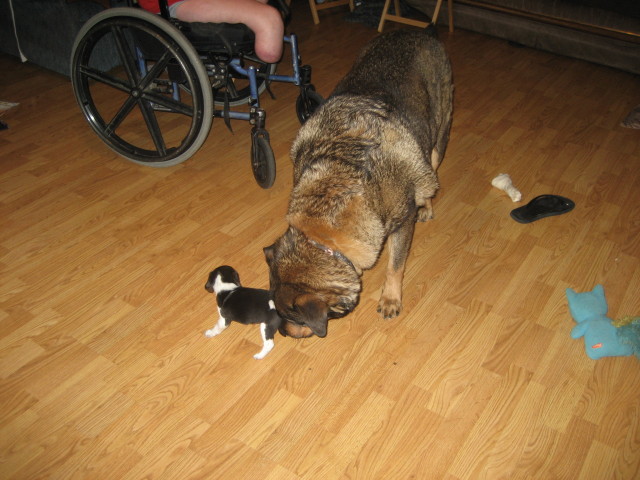 Getting a puppy and dog to get along
Question
RC and Kayleigh
Last Tuesday our dog for 14 ye
Getting a puppy and dog to get along
Question
RC and Kayleigh
Last Tuesday our dog for 14 ye
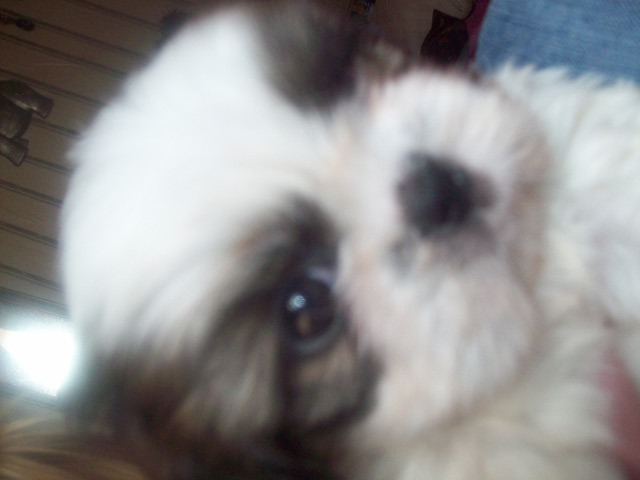 8wk old pup biting
Question
pebbles
hi i wonder if u can help me my
8wk old pup biting
Question
pebbles
hi i wonder if u can help me my